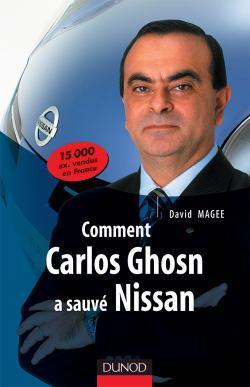What do you think?
Rate this book


264 pages, Hardcover
Published January 1, 2005
The story of how Carlos Ghosn contributed to the success of the Renault-Nissan is quite compelling. Ghosn took a failing Japanese car company and turned it into a profitable and innovative brand in little over two years with a simple but effective management philosophy. This book chronicles Ghosn's career with a special focus on his first years with Nissan (1999-2003).
There are many ways to tell this story; as a case study for business classes, as a biography of an international executive, or even as a history of an important company. Unfortunately, this book is simultaneously part hagiography and part case study, which makes it a mediocre read. The book is littered with sections that come off as adulatory, for example:
"When he speaks, he is typically direct and honest. If it's true, he is not afraid to say it. And he cannot help but lace his thoughts and comments with a philosophical style reflective of his French education and days spent rationalizing people and life with fellow students in Paris." (p. 168)In addition, while the information might be well researched, it certainly doesn't come across as such since there aren't any footnotes or endnotes (from what I can tell, the author David Magee relied on company information and interviews as well as outside resources).
Nissan 180 Relies Four Pillars: (a) more revenue (through one million additional unit sales) (b) less cost (reducing costs 15 percent over three years) (c) more quality and speed (focusing on product and management) (d) maximized alliance with Renault (finding synergies that benefit both) (pp. 198-199)However the book does not go into enough detail to offer serious business insight. Instead, Magee frequently repeats himself and delivers superficial "management advice" that might be worthy of a powerpoint (but not a book).